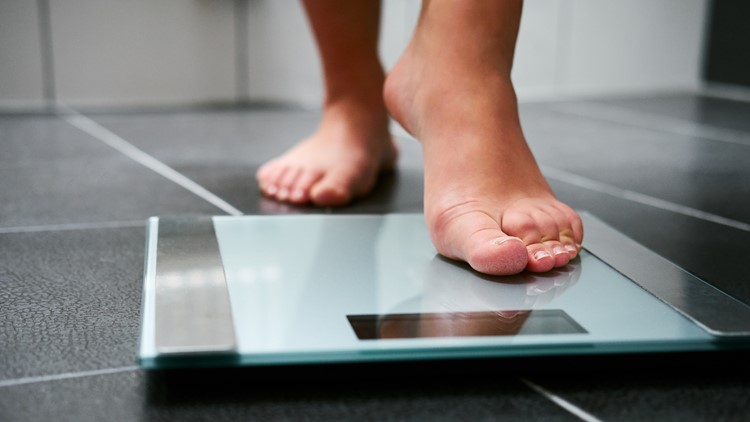CLEVELAND — Are you stepping on the scale in the morning, and feeling frustrated when the number isn’t budging?
It‘s possible habits from the night before are to blame.
According to Kasey Goodpaster, Ph.D., of Cleveland Clinic, it’s easy to rack up excess calories in the evening, especially if watching TV is part of a bedtime routine.
“Watching TV while snacking is a really frequent behavior that we see with people who are struggling with their weight-management, because watching TV is such a passive activity; there’s a lot of unhealthy food cues on there, so it’s really easy for the calories to add up in the evening hours,” she said.
Dr. Goodpaster said some people may even suffer from a disorder called ‘night-eating syndrome.’
This happens when people have the urge to eat another meal’s equivalent after dinner, or eat in the middle of the night.
It creates a vicious cycle where they’re not hungry in the morning, may skip meals, but then become overly-hungry later in the day, or at night.
And when we’re hungry at night, Dr. Goodpaster said this is a time when we’re not as likely to spend a lot of time preparing healthy meals.
Also, she said we’re programmed to crave high-carbohydrate, low fiber, foods in the evening, or when we’re overly tired.
To combat this cycle of unhealthy eating habits, Dr. Goodpaster recommends eating regular meals throughout the day, and in the evening, taking a pause before indulging an urge for a nighttime snack right away.
“Maybe it wasn’t that physical hunger after all, maybe the craving is coming from something else,” she said. “It could be stress, and really needing to find a relaxation activity in the evening – something non-food related, and that might be something like deep-breathing exercises, or taking a nice hot bath or shower.”
Dr. Goodpaster warns against using eating as a way to manage stress. When we find better ways to manage stress, we sleep better, and when we sleep better, it’s easier to develop a healthier meal structure.
“What are the underlying needs that are prompting eating in the evening? Because if it’s not physical hunger, then ultimately, the food’s not really going to satisfy it anyway,” she said. “And so, one might keep trying to go get a snack food, and in the moment it feels good, but then very quickly, that feeling of happiness goes away.”
RELATED VIDEO:
More Health News on 13 ON YOUR SIDE:
►Make it easy to keep up to date with more stories like this. Download the 13 ON YOUR SIDE app now.
Have a news tip? Email news@13onyourside.com, visit our Facebook page or Twitter. Subscribe to our YouTube channel.




